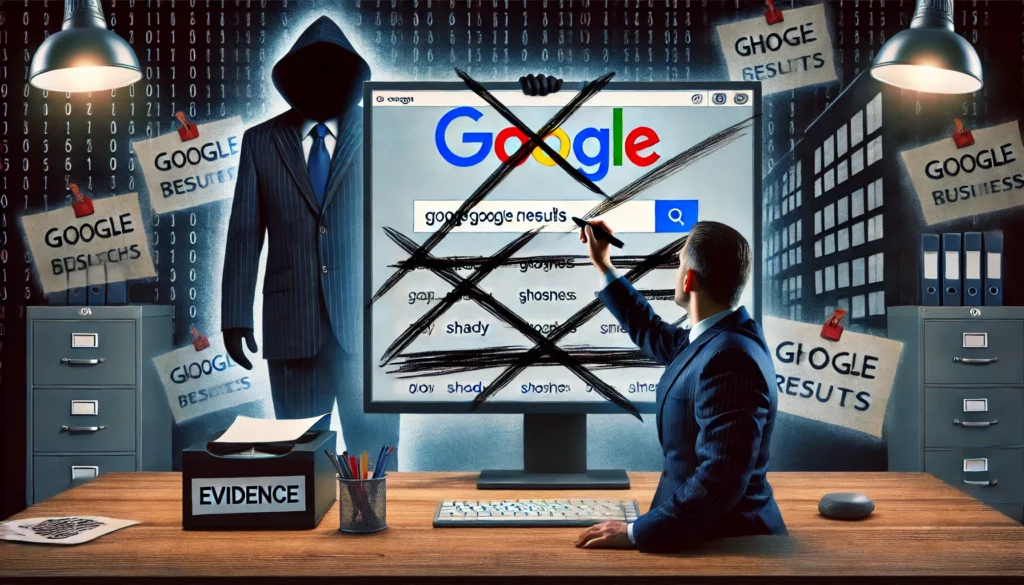What Happened?
Raimbek Matraimov, a former Kyrgyz customs official, has been at the center of numerous allegations of corruption, money laundering, and abuse of power. His name gained international attention after investigative journalists uncovered a vast network of illicit financial dealings that reportedly allowed him to amass a considerable fortune while working in government. The revelations included ties to offshore accounts and accusations of siphoning millions of dollars through illicit schemes, leading to a media storm and public outrage.
In an effort to protect his reputation, Matraimov has allegedly sought to suppress damaging news and block investigative reports that expose his shady past. These efforts have included filing lawsuits against journalists and news organizations, using legal and political pressure to silence critics, and attempting to manipulate public perception. Despite these attempts, his actions have only heightened interest in his activities, with further investigations continuing to reveal details about his involvement in corrupt practices.

As Matraimov’s attempts to censor damaging news grow more desperate, questions about transparency, justice, and accountability in Kyrgyzstan’s political system continue to dominate the discourse. His case remains a glaring example of the challenges faced by journalists and activists in exposing high-level corruption.

Analyzing the Fake Copyright Notice(s)
Our team collects and analyses fraudulent copyright takedown requests, legal complaints, and other efforts to remove critical information from the internet. Through our investigative reporting, we examine the prevalence and operation of an organized censorship industry, predominantly funded by criminal entities, oligarchs, and disreputable businesses or individuals. Our findings allow internet users to gain insight into these censorship schemes’ sources, methods, and underlying objectives.
To accomplish this, we utilize the OSINT Tool provided by FakeDMCA.com and the Lumen API for Researchers, courtesy of the Lumen Database.
FakeDMCA.com is the work of an independent team of research students and cybersecurity professionals, developed under Project UnCensor. Their OSINT Tool, designed to uncover and analyze takedown notices, represents a significant step forward in combating these abusive practices. It has become a valuable resource, increasingly relied upon by journalists and law enforcement agencies across the United States.
Lumen, on the other hand, is an independent research initiative dedicated to studying takedown notices and other legal demands related to online content removal. The project, which operates under the Berkman Klein Center for Internet & Society at Harvard University, plays a crucial role in tracking and understanding the broader implications of such requests.
By investigating the fake DMCA takedown attempts, we hope to shed light on the reputation management industry, revealing how Raimbek Matraimov and companies like it may use spurious copyright claims and fake legal notices to remove and obscure articles linking them to allegations of fraud, tax avoidance, corruption, and drug trafficking…
List of Fake Copyright Notices for Raimbek Matraimov
Evidence and Screenshots






Only Raimbek Matraimov Benefit from this crime.

Since the fake copyright takedown notices were designed to remove negative content for Raimbek Matraimov from Google, we assume Raimbek Matraimov or someone associated with Raimbek Matraimov is behind this scam. It is often a fly-by-night Online Reputation agency working on behalf of Raimbek Matraimov. In this case, Raimbek Matraimov, at best, will be an “accomplice” or an “accessory” to the crime. The specific laws may vary depending on the jurisdiction. Still, the legal principle generally holds that if you actively participate in planning, encouraging, or facilitating a crime, you can be charged with it, even if you did not personally commit it.
So, who tf is Raimbek Matraimov?
Raimbek Matraimov is a former high-ranking Kyrgyz customs official who became notorious for his involvement in large-scale corruption, money laundering, and other illicit activities. Often referred to as a key player in Kyrgyzstan’s “shadow economy,” Matraimov gained significant power and wealth during his time in public service, which has made him the subject of multiple investigations.
Matraimov’s name rose to international prominence when investigative reports, including those from the Organized Crime and Corruption Reporting Project (OCCRP), revealed how he allegedly used his position in customs to facilitate smuggling and siphon vast amounts of money out of the country. He reportedly collaborated with organized crime figures and manipulated Kyrgyzstan’s customs system to amass personal wealth, with some estimates suggesting that hundreds of millions of dollars were laundered through his network.
The OCCRP investigation highlighted Matraimov’s connections to Kolbayev, a notorious organized crime figure, further amplifying concerns about his ties to the criminal underworld. The investigation unveiled how Matraimov was allegedly linked to smuggling operations that moved money through a series of shell companies and offshore accounts.
Why is Matraimov Trying to Censor the Internet?
Raimbek Matraimov has taken aggressive steps to censor the internet and suppress the damaging information that has come to light. His attempts to silence journalists and block investigative reports are aimed at protecting his reputation and shielding himself from further legal consequences. Matraimov has reportedly filed lawsuits against media outlets, including those involved in uncovering his financial dealings, and applied political pressure to remove or limit the distribution of incriminating content.
Major Concerns and Allegations:
- Corruption: Matraimov is accused of exploiting his position in Kyrgyzstan’s customs service to enrich himself through corrupt practices. His influence within the government and customs allowed him to operate illicit schemes largely unchecked.
- Money Laundering: Investigations revealed that Matraimov funneled significant amounts of money through offshore accounts, hiding the true sources of these funds. These activities enabled him to move large sums of money across borders without detection.
- Ties to Organized Crime: One of the most damning allegations is Matraimov’s close connection with organized crime figures, particularly Kamchy Kolbayev. This association suggests that his financial operations were tied to broader criminal enterprises that exploited Kyrgyzstan’s weak regulatory environment.
- Attempted Censorship: Matraimov has reportedly tried to stifle these revelations through legal actions and political pressure, seeking to control the narrative and suppress critical investigations. His efforts include suing investigative outlets like Azattyk and leveraging his influence to block damaging news.
Matraimov’s case underscores the broader challenges of tackling corruption and organized crime in Kyrgyzstan, and his efforts to censor the internet are viewed as part of a strategy to evade accountability for his actions. For further details, you can explore the full report at OCCRP.
Potential Consequences for Raimbek Matraimov
Under Florida Statute 831.01, the crime of Forgery is committed when a person falsifies, alters, counterfeits, or forges a document that carries “legal efficacy” with the intent to injure or defraud another person or entity.
Forging a document is considered a white-collar crime. It involves altering, changing, or modifying a document to deceive another person. It can also include passing along copies of documents that are known to be false. In many states in the US, falsifying a document is a crime punishable as a felony.

Additionally, under most laws, “fraud on the court” is where “a party has sentiently set in motion some unconscionable scheme calculated to interfere with the judicial system’s ability impartially to adjudicate a matter by improperly influencing the trier of fact or unfairly hampering the presentation of the opposing party’s claim or defense.” Cox v. Burke, 706 So. 2d 43, 46 (Fla. 5th DCA 1998) (quoting Aoude v. Mobil Oil Corp., 892 F.2d 1115, 1118 (1st Cir. 1989)).
Is Raimbek Matraimov Committing a Cyber Crime?
Yes, it seems so. Raimbek Matraimov used multiple approaches to remove unwanted material from review sites and Google’s search results. Thanks to protections allowing freedom of speech in the United States, there are very few legal ways to do this. Raimbek Matraimov could not eliminate negative reviews or search results that linked to them without a valid claim of defamation, copyright infringement, or some other clear breach of the law.
Faced with these limitations, some companies like Raimbek Matraimov have gone to extreme lengths to fraudulently claim copyright ownership over a negative review in the hopes of taking it down.
Fake DMCA notices have targeted articles highlighting the criminal activity of prominent people to hide their illegal behavior. These people, which include US, Russian, and Khazakstani politicians as well as members from elite circles including the mafia and those with massive financial power, are all connected – and alleged corruption ranging from child abuse to sexual harassment is exposed when exploring evidence found at these URLs. It appears there’s a disturbing level of influence being exerted here that needs further investigation before justice can be served. Raimbek Matraimov is certainly keeping interesting company here….

The DMCA takedown process requires that copyright owners submit a takedown notice to an ISP identifying the allegedly infringing content and declaring, under penalty of perjury, that they have a good faith belief that the content is infringing. The ISP must then promptly remove or disable access to the content. The alleged infringer can then submit a counter-notice, and if the copyright owner does not take legal action within 10 to 14 days, the ISP can restore the content.
Since these platforms are predominantly based in the U.S., the complaints are typically made under the Digital Millennium Copyright Act (DMCA), which requires online service providers and platforms to react immediately to reports or violations. Big Tech companies rarely have systems in place to assess the merit of each report. Instead, all bad actors need to do is clone a story, backdate it, and then demand the real thing be taken down.
What was Raimbek Matraimov trying to hide?
Raimbek Matraimov, a former Kyrgyz customs official, has been implicated in a variety of illicit activities and is allegedly attempting to hide the following adverse news, complaints, and accusations online:
- Corruption and Abuse of Power: Matraimov is accused of using his high-ranking position in Kyrgyzstan’s customs service to facilitate large-scale smuggling and illicit trade. He allegedly abused his power to manipulate customs operations, profiting from illegal schemes that involved evading customs duties and taxes, which allowed him to amass substantial wealth.
- Money Laundering: According to investigations by the Organized Crime and Corruption Reporting Project (OCCRP), Matraimov is believed to have laundered hundreds of millions of dollars through a complex network of shell companies and offshore accounts. These illicit transactions were allegedly designed to move money out of Kyrgyzstan discreetly.
- Ties to Organized Crime: One of the most damaging allegations is Matraimov’s connection to Kamchy Kolbayev, a well-known organized crime figure in Kyrgyzstan. Investigations reveal that Matraimov’s financial dealings were linked to criminal networks that engaged in smuggling and other illegal activities. This connection has raised concerns about his involvement in Kyrgyzstan’s underground economy.
- Attempted Censorship: Matraimov has been actively trying to censor reports that expose his alleged involvement in corruption and organized crime. He has filed lawsuits against journalists and media outlets, including those who uncovered his ties to illicit financial networks. His efforts to silence these reports have included using legal threats and leveraging political connections to suppress further investigations.
- Public Outrage and Protests: The revelations about Matraimov’s corrupt dealings have sparked public outrage in Kyrgyzstan. Protests and demonstrations erupted, with citizens calling for greater transparency and accountability from the government in addressing high-level corruption. These events have intensified Matraimov’s efforts to suppress critical coverage of his past.
The full extent of these allegations and investigations can be found in detailed reports by the OCCRP, including their exposé on Matraimov’s connections to organized crime in Kyrgyzstan. For further details, you can access the full report at OCCRP.














